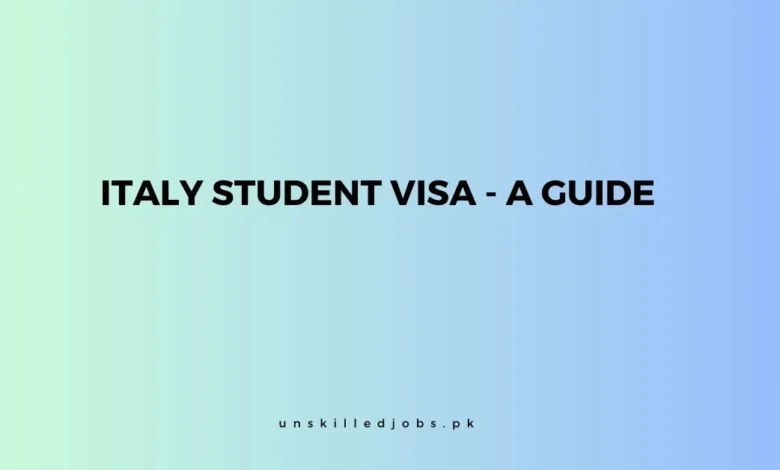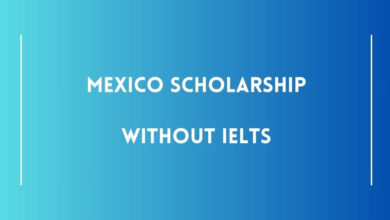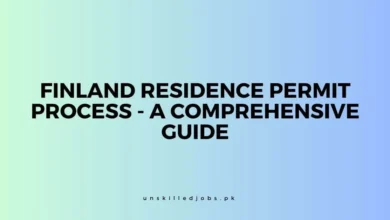Italy Student Visa 2024 – A Guide

This is what students need to do if they want to study in Italy for more than three months. Whether you need a visa or not depends on what country you are from. However, anyone coming to Italy to study for more than three months will need to apply for an Italian residence pass. A national or D-visa is what you need to study in Italy. This is a long-stay visa that lets you go to Italy.
The Italian embassy or consulate is where you can get a student visa. People from other countries have always loved going to school in Italy. Many Italian grants are open to students from other countries. I’ll list a few of them below. You need to send in your application as soon as possible. A note of acceptance to a school in Italy can help you get a student visa. Here are more information about how to get an Italy student visa and a list of the documents you’ll need.
Who Does Not Need an Italy Student Visa?
Only nationals from the following countries are exempt from holding an Italian Student Visa to enter Italy:
- EU (European Union) countries
- Switzerland
- Norway
- Liechtenstein
- Iceland
Still, people from those countries will need to apply for an Italian Residence Permit three months after they get to Italy. To get an Italian residence pass, you can only do so in Italy.
Who Needs an Italy Student Visa?
People from all the other countries not on this list must first apply for a student visa at the embassy, consulate, or VFS. After that, they will apply for a pass to live in Italy.
Why Long Stay (D Visa is Needed)?
If your program lasts longer than 90 days and you are coming to Italy for college, whether it is an undergrad or grad school, you will usually need a long-stay visa.
Requirements for Italy Student Visa
- Italy Student Visa Application Form: Get a visa application form from the Italian office or consulate and fill it out and send it in.
- Valid Enrollment/Admission Offer:: Show an official letter of acceptance or admission from a school or university in Italy.
- Passport-Sized Photos: Send recent photos the size of a passport that meets the embassy’s requirements.
- Proof of Enrollment or Pre-Enrollment: have already enrolled: Show proof that you are enrolled or have already enrolled in a recognized Italian university study.
- Police Clearance: Get a certificate from the police in your home country saying that you have no crime record.
- Proof of Accommodation: Show proof of where you will stay in Italy, like a rental deal or a letter from your host.
- Adequate Health Insurance: Show proof that you have health insurance that meets Italian standards for the whole time you are staying there.
- All Previous Educational Documents: Include pictures of your diplomas, certificates, and transcripts from all of your previous schools.
- Proof of Financial Statements: Show that you have enough money to pay for your education and living costs while you are in Italy. Some examples of this are bank records, letters of recommendation, or affidavits of support.
- Visa Application Fee: You must pay the visa application fee and show proof that you did so.
How to Apply for the Italy Student Visa?
- To get a visa, you need to fill out an application form, make an appointment on the VFS global website, or check with the Italian office or consulate.
- Always bring the originals of everything with you to your meeting.
- Pay the fee for the visa and send in the paperwork with your passport.
Visa Cost
A student visa for Italy costs about 50 Euros to apply for. The price might be different for people from different countries.
How to Apply for the Italian Residence Permit in Italy?
You have eight business days from the time you arrive to apply for a residence pass. Bring your passport and other trip papers with you.
Cost of a Residence Permit
- €40 for stays between 3 and 12 months
- €50 for stays between 12 and 24 months
- €100 for long-term residence permits
Work in Italy during Studies
You are allowed to work 20 hours per week, with a limit of 1040 working hours within 52 weeks.
Conclusion
Studying in Italy is a great way to learn and experience the culture, but you need to plan ahead to get the right visas and living permits. Students from outside the EU need to get a long-stay student visa before they come to Italy and apply for a residence pass within eight business days of arriving. You can start your academic journey in Italy and enjoy the benefits of learning in one of Europe’s most prestigious educational landscapes as long as you meet the requirements and have the necessary documents ready.
Frequently Asked Questions
-
Do I need a student visa to study in Italy for more than three months?
If you want to study in Italy for longer than three months and are not from an EU country, you will need a long-stay student visa (D-visa). People from the EU and a few other countries don’t need a visa, but they do need to apply for a residence pass when they get there.
-
How do I apply for an Italian student visa?
Fill out the application form, set up a meeting with the Italian embassy, consulate, or VFS Global, and make sure you bring all the necessary paperwork with you. Pay the fee for applying for a visa and send in your paperwork.





